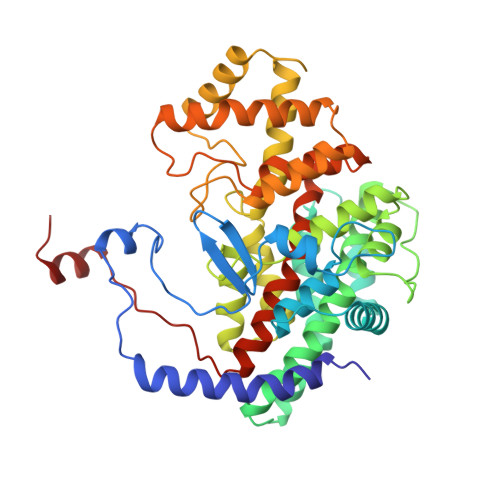alpha-Fluoro acid and alpha-fluoro amide analogs of acetyl-CoA as inhibitors of citrate synthase: effect of pKa matching on binding affinity and hydrogen bond length.
Schwartz, B., Drueckhammer, D.G., Usher, K.C., Remington, S.J.(1995) Biochemistry 34: 15459-15466
- PubMed: 7492547
- DOI: https://doi.org/10.1021/bi00047a010
- Primary Citation of Related Structures:
1CSR, 1CSS - PubMed Abstract:
An alpha-fluoro acid analog and an alpha-fluoro amide analog of acetyl-CoA have been synthesized. The ternary complexes of these inhibitors with oxaloacetate and citrate synthase have been crystallized and their structures analyzed at 1.7 A resolution. The structures are similar to those reported for the corresponding non-fluorinated analogs (Usher et al., 1994), with all forming unusually short hydrogen bonds to Asp 375. The alpha-fluoro amide analog binds with an affinity 1.5-fold lower than that of a previously described amide analog lacking the alpha-fluoro group. The alpha-fluoro acid analog binds with a 50-fold decreased affinity relative to the corresponding unfluorinated analog. The binding affinities are consistent with increased strengths of hydrogen bonds to Asp 375 with closer matching of pKa values between hydrogen bond donors and acceptors. The results do not support any direct correlation between hydrogen bond strength and hydrogen bond length in enzyme-inhibitor complexes.
- Department of Chemistry, Stanford University, California 94305, USA.
Organizational Affiliation:


















